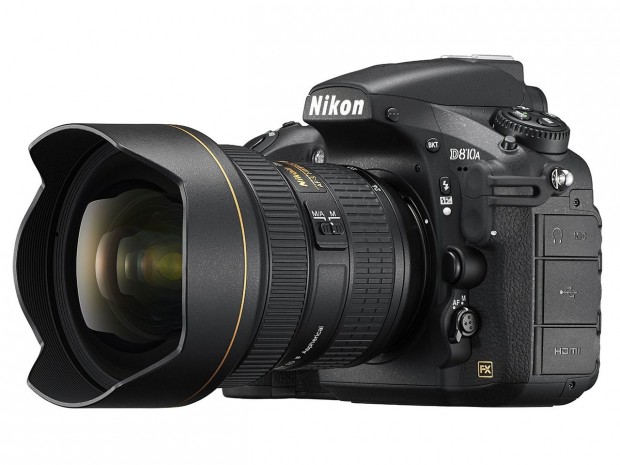The new released Nikon D810A now in stock in most US stores (Amazon, B&H Photo Video, Adorama, WEX, Jessops). According to latest reviews from the web, the Nikon D810A could be the best low light / high ISO DSLR camera that Nikon ever made.
Nikon D810A Vs. Nikon D810 Vs. Nikon D750 high ISO comparison by Adam Woodworth
From Adam Woodworth:
In my experience the D810A matches the high ISO performance of the Nikon D750. The D750 has a 24MP sensor and until the D810A came out it was the cleanest high megapixel DSLR, about a stop better than the Nikon D810. But the D810A, like the D800/D800E/D810, has a 36MP sensor and appears to have the same high ISO performance of the 24MP D750. With some other nice features, the D810A is an amazing landscape astrophotography camera although there are some gotchas caused but the IR filter.
The D810A is a landmark camera for astrophotography, with amazing high ISO performance and the convenience of (limited) exposures longer than 30s in camera. The IR Cut filter is both a plus and a minus depending on the situation, but the nice pop and increased color that it brings out in the Milky Way is very nice.
Nikon D810A Vs. Nikon D810 high ISO Comparison by Nikon Rumors
From Nikon Rumors:
It *IS* appropriate for general use photography, indoors or outdoors. There is not an obvious color cast, at least not one that is as pronounced as the coloration differences that occur when you change from say a Zeiss lens to a Sigma or Nikon lens. This might be the best low-light/high ISO DSLR Nikon has ever made
Nikon D810A review by Astrofotografen
From astrofotografen:
Positive
- Very good high ISO performance
- More sensitive in H-alpha
- No need for a computer when doing astrophotography
- Boosted live view
- Long exposure M* mode
- Electronic Front-Curtain Shutter
- Good battery life
Negative
- No tiltable LCD
- No backlit camera buttons
- Boosted live view can be a bit noisy
- Higher sensitivity to red light could cause some problem for general daylight photography
